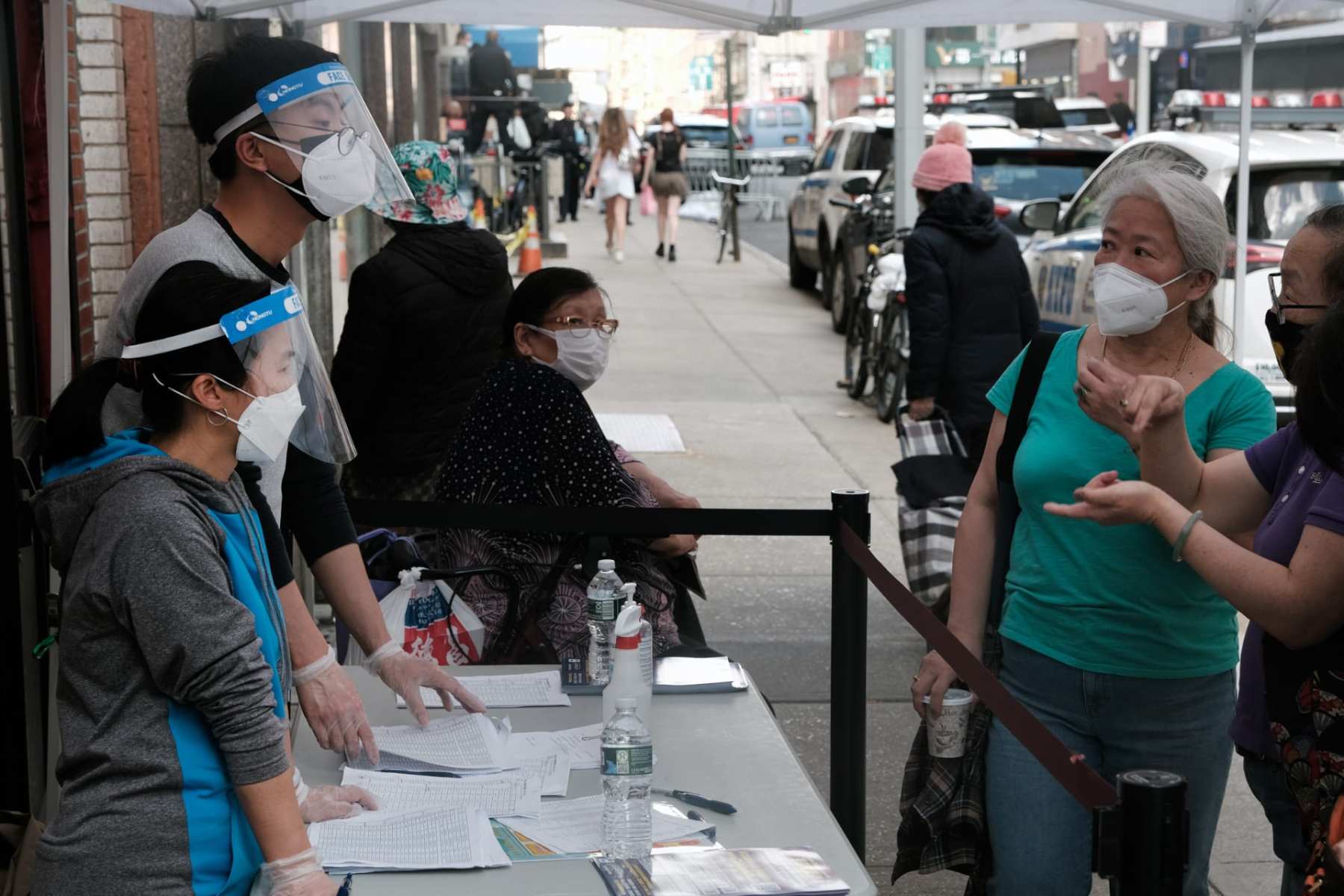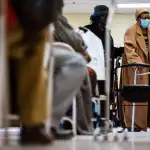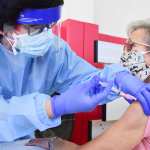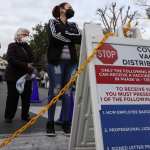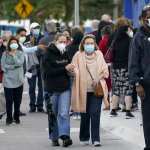Older women are significantly less likely than older men to report having gotten their first dose of COVID-19 vaccine, per new polling from the Kaiser Family Foundation — a gap that underscores just how difficult the vaccination campaign remains, even as most Americans can expect to qualify for an immunization by mid-April.
Older people are far more likely to die of COVID-19, and adults 65 and over account for close to 8 in 10 of the nation’s coronavirus deaths. But the KFF polling suggests underlying challenges in reaching older women, who make up the majority of the nation’s seniors.
Only 59 percent of older women reported getting at least one dose of a COVID-19 vaccine, the poll found. Meanwhile, 70 percent of older men said they had gotten at least one immunization — a gap of 11 percentage points.
The KFF poll suggests the gender gap stems almost entirely from differences in who has tried to sign up for a shot. More than a quarter of senior women — about 26 percent — said they had not tried to book a vaccine appointment, compared with only 17 percent of senior men who said the same.
“That’s not just noise,” said Ashley Kirzinger, a pollster at KFF.
The data comes just as the nation enters what could be a new phase in the vaccination effort. So far, about 146 million vaccines have been administered, per CDC data, and about 15.8 percent of the population is fully vaccinated. On Monday, President Joe Biden said that 90 percent of adults would be eligible for a vaccine by April 19 and that 90 percent of adults would live within five miles of a pharmacy supplying vaccines. Biden has previously said there will be enough vaccines by May to immunize every adult.
But setting up vaccination sites takes time, and many people who are eligible will not be able to immediately get shots. Addressing any disparities — whether based on race, gender or something else — will require deliberate, targeted efforts, experts argue.
For one thing, Kirzinger said, older women appear to have more concerns about the vaccine’s safety and effectiveness. About 11 percent of older women say they will definitely not get a coronavirus vaccine, compared with only 4 percent of older men.
“Some older women may need to be convinced of the safety and efficacy of the vaccine before choosing to receive one,” Kirzinger said.
Plus, Kirzinger said, older men in the poll were more likely than the women to be employed as essential workers. That means they are more likely to have faced job-based requirements that they get vaccinated.
Reaching older women fits into a larger effort to combat vaccine hesitancy. About 17 percent of Americans still say they will “wait and see” about taking a vaccine, and 13 percent say they will not get a shot under any circumstances, per the KFF poll — with Republicans and evangelicals across genders being most likely to say they will not get immunized.
Messaging experts say that persuading the undecided will take a multipronged effort, with different approaches for different groups.
Infectious disease and public health experts including Rochelle Walensky, director of the Centers for Disease Control and Prevention, have suggested that, if unaddressed, the persistence of vaccine hesitancy among a minority of people could undercut efforts to reach herd immunity.
The CDC reports that about 73 percent of adults 65 and older have gotten at least one dose of a coronavirus vaccine, a slightly higher figure than the KFF reports.
It’s not clear if other structural barriers may be uniquely affecting older women, who are more likely than men to live by themselves and are more likely to face financial hardship.
Vaccine sign-up systems are run by individual states and often operated primarily online, though about a quarter of seniors do not have regular, at-home internet to make an appointment, per the Department of Health and Human Services. The agency does not compare internet access by gender. Lack of internet, or not having another person around to help with signing up, could also pose challenges.
The Biden administration committed Monday to expanding vaccine access through mass vaccination sites and boosting supply at pharmacies. It also pledged about $100 million for helping vaccinate seniors and people with disabilities — including plans to help transport people to vaccine appointments and funding for a national vaccine hotline.
